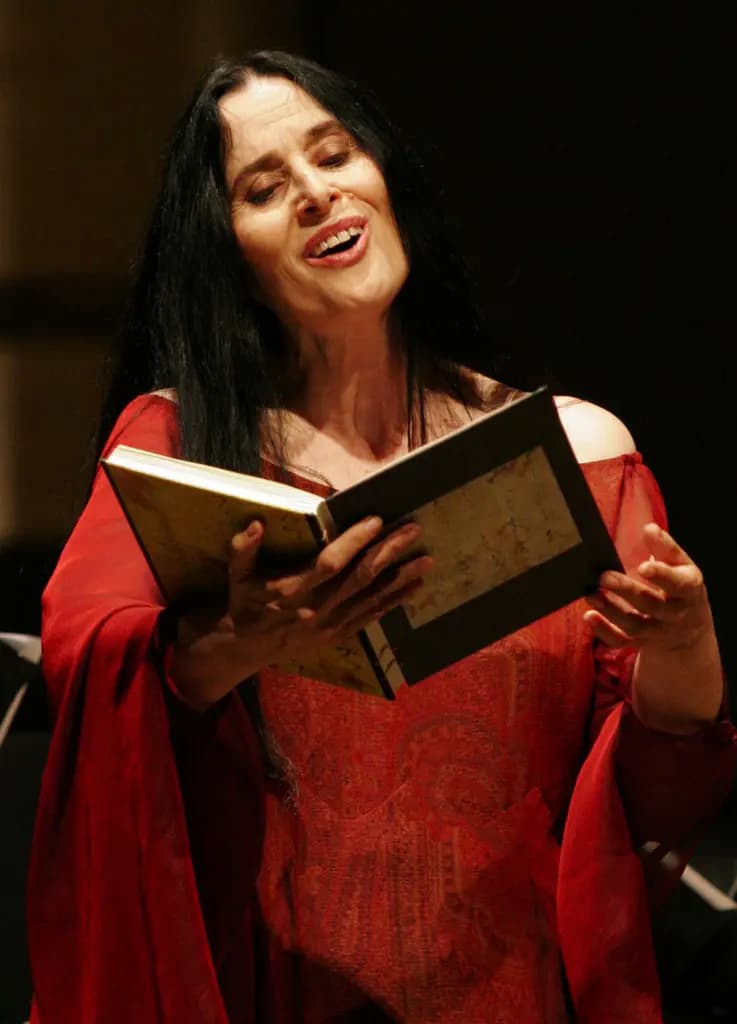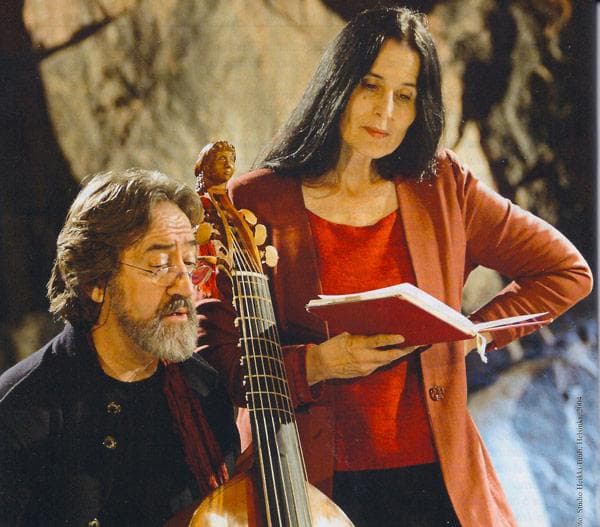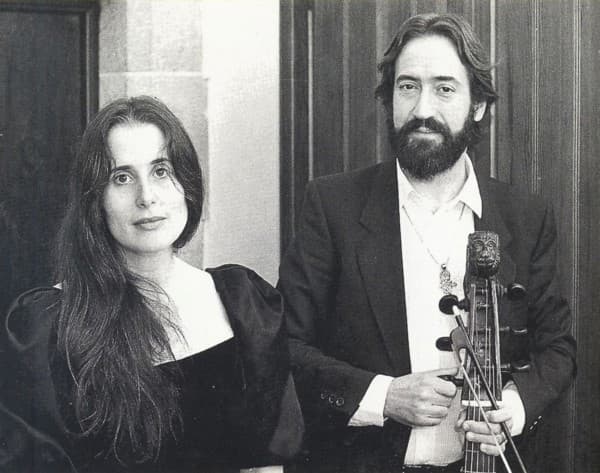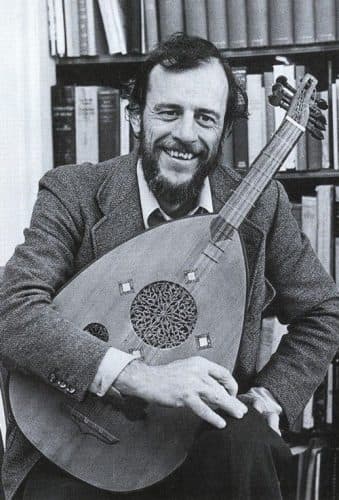Catalan soprano Montserrat Figueras, together with partner and husband Jordi Savall, was a leading voice in the early music movement by focusing on the vast vocal repertoire from the Medieval, Renaissance, and early Baroque periods.

Montserrat Figueras
Her approach to these immense repertoires was instinctive and intuitive, spiritual and expressive rather than academic. “It is not enough,” she once disclosed in an interview, “to listen to this music with your ears; you must listen with your soul, your spirit.”
Monserrat Figueras performs “La Folia: Yo Soy la Locura”
Cultural Melting Pot
Montserrat Figueras was born on 15 March 1942 into a family of amateur musicians in Barcelona. Always proud of her Iberian heritage, Figueras felt fortunate that her country is such a wonderful melting pot of different cultures. “When you hear music, traditional Spanish music like flamenco, you feel the influence of the East, India, Islam… However, we always express it in our own way, blended with different cultures, with respect and having in mind that it is in our veins.”

Montserrat Figueras and Jordi Savall
She started singing at an early age, surrounded by centuries-old vocal techniques still in use in Catalonia. Figueras began vocal studies with Jordi Albareda i Bach, a pianist renowned for his great musicality, memory, and considerable agility. He was one of the most sought-after accompanists, and he acquired and passed on a deep and extensive knowledge of the vocal repertoire.
Giraut de Bornelh: Si us quer conselh, bel’ami’Alamanda (Montserrat Figueras, soprano; Hespèrion XX; Jordi Savall, cond.)
Ars Musicae de Barcelona
Her studies with Albareda were partly inspired by her dream of becoming an actress. However, gradually music gained the upper hand, and she joined a local chorus called “Alelyua,” and subsequently the Catalan early music ensemble “Ars Musicae de Barcelona.” It was one of the first Spanish early music ensembles directed by the musicologist Enric Gispert, and they performed sacred works by the great Spanish polyphonists of the 16th century and the songbooks from the Court of Charles V.
The group made several phonographic recordings, and their repertoire spanned across a wide canvas, ranging from black spirituals to Hindemith and Renaissance compositions. Together with her sister Pilar, Figueras began to investigate early vocal techniques in Sephardic songs, Catalan folk music, Iberian Renaissance songs, and the music of the Balkans. She became part of a generation of young singers exploring music written before 1800 and a pioneer of the emerging early music movement. As he explained in an interview, “we realised that an operatic approach to this music was inappropriate. This music is like a mirror. It reflects and shows all that is in the past and what we are like now.”
Monserrat Figueras Performs Monteverdi’s L’Orfeo, “Dal mio Permesso”
Jordi Savall
As the ensemble Ars Musicae de Barcelona was preparing for a recording with Victoria de los Ángeles, Enric Gispert was looking for a good gamba player. Figueras recommended the fine cellist Jordi Savall, whom she had met earlier while taking a cellos class. As Savall relates, “we were both studying the instrument around the age of 22 or 23 at the Conservatori del Bruc in Barcelona.”

Montserrat Figueras and Jordi Savall
“My teacher wasn’t very comfortable with the way I played Bach. Montserrat would remain behind, listening from the hallway. When I’d leave the class, she’d always say to me very softly. Don’t worry. You play very well. This was a fantastic feeling that lasted the whole day.” This first encounter with Figueras’ voice, according to Savall, was “the beginning of everything.”
Fernando Sor: Ti ricordi che giurasti (Montserrat Figueras, soprano; José Miguel Moreno, guitar)
Basel Music Academy
Figueras and Savall married in 1968, and together they travelled to Basel in Switzerland to study at the Basel Music Academy and the Schola Conatorum Basiliensis. Basel was one of the fast-growing early music centers, and Figueras continued her vocal studies with the Swiss baritone Kurt Widmer. She recalls, “Although I was at the Conservatoire in Basel at the time, I greatly enjoyed going to Thomas Binkley’s medieval class at the Schola Cantorum.”

Thomas Binkley
The American lutenist Thomas Binkley was one of early music’s foremost performers, scholars, and educators, particularly in medieval music. Figueras’s encounter with such established and gifted early music exponents completely transformed her approach to singing, and her research in the repertory became her life’s work. A scholar writes, “Her extraordinary range of vocal and theatrical expression made the dusty manuscripts of far-off times come alive. Her voice and her scholarship exerted a decisive influence on the whole historical music movement.”
For more of the best in classical music, sign up for our E-Newsletter
